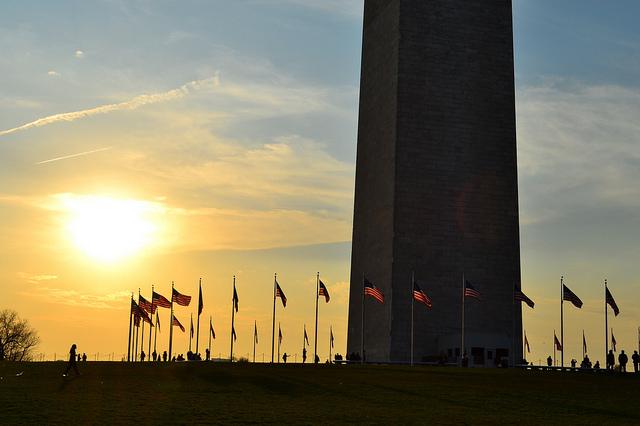 Welcome to our first edition of ‘suggests’ from Washington, DC. I’m currently located at the Center for a New American Security where I’m being kindly hosted as a visiting fellow focusing on Indonesia. You can find out more on their research programs here.
Welcome to our first edition of ‘suggests’ from Washington, DC. I’m currently located at the Center for a New American Security where I’m being kindly hosted as a visiting fellow focusing on Indonesia. You can find out more on their research programs here.
Being in the US, it’s soon apparent the different ways in which our alliance partner views the world, so this week I’ve rounded up new reports and multimedia on Asia Pacific matters from an American perspective.
First up, CSIS’ Ernie Bower and Brian Kraft see the upcoming Indonesian presidential election as a two-horse race between Joko Widodo (Jokowi) and former Kopassus head, Prabowo Subianto. According to the authors, expect less change in foreign policy but a more centralised management approach under Prabowo and a more personal style and technocrat filled foreign and economic policy team under Jokowi. Most importantly, they state: ‘For the United States, it is most important to focus on the mandate of the Indonesian people. Washington must embrace and work with whichever candidate is elected’—a not-so-subtle reference to allegations against Prabowo of human rights abuse.
On Thailand’s coup, Joshua Kurlantzick of the Council on Foreign Relations looks at how this previously functional Southeast Asian democracy ‘got so screwed up’. According to Kurlantzick, Thailand has experienced a number of the same factors that have rolled back democracy in states like Pakistan, the Philippines, Russia, and Venezuela. In Thailand’s case, Thaksin’s rise to power and the role of the King have also been key.
Sticking with Southeast Asia, Armando J. Heredia usefully summarises the situation in the South China Sea between the Philippines and China. He also lists the potential sites where American forces might be based under the enhanced US–Philippines defence pact signed during President Obama’s recent visit.
Dr Robert Farley, better known to Strategist readers for his case on abolishing the US Air Force, has a new Lowy Interpreter post on the impact of the F-35B on Asia Pacific security. Worth reading in full for the specific technical advantages an F-35B variant provides, Farley ultimately concludes:
… until Korea, Japan, or Australia decide to commit to a dedicated carrier similar in size and capability to those of the Royal Navy (or at the very least to the Italian Cavour), the biggest impact of the F-35B in the Asia Pacific will be on US capability.
Also on technology, CNAS’ Paul Scharre has just released a new paper on robotics on the battlefield. Scharre argues ‘the winner of the robotics revolution will not be who develops this technology first or even who has the best technology, but who figures out how best to use it’.
For something more philosophical, try US SOCOM Commander Admiral William McRaven’s address delivered at the University of Texas last weekend. Drawing on experiences from 36 years as a Navy SEAL (including being stuck neck-deep in mud and swimming with sharks), Admiral McRaven delivers life lessons such as, ‘If you want to change the world, start off by making your bed’.
Video
Is it smart for the US to arrest Chinese cyber warriors? Robert Wright and James Traub over at bloggingheads.tv debate this question and also look at whether Washington has learned any lessons from Iraq.
If you’ve watched the award-winning film Restrepo by Sebastian Junger and Tim Hetheringon, check out the trailer to Junger’s new project Korengal. The film uses footage collected during Junger and Hetherington’s 15-month embed with a US Army platoon in the Korengal Vally, Afghanistan (read here on how they filmed it) but unlike Restrepo, it focuses on the backgrounds and stories of individual soldiers, rather than the war itself.
Events
Closer to home, the ICRC Australia Mission is hosting a panel discussion on ‘New technologies and the future battlefield’, focusing on soldier enhancement. This free event is on Tuesday 27 May at Melbourne Law School, and features Asia Pacific military law experts who’ll grapple with both legal and ethical questions. For more info and registration, see here.
Natalie Sambhi is an analyst at ASPI and editor of The Strategist, and currently a visiting fellow at the Center for a New American Security. Image courtesy of Flickr user Francis Luong.